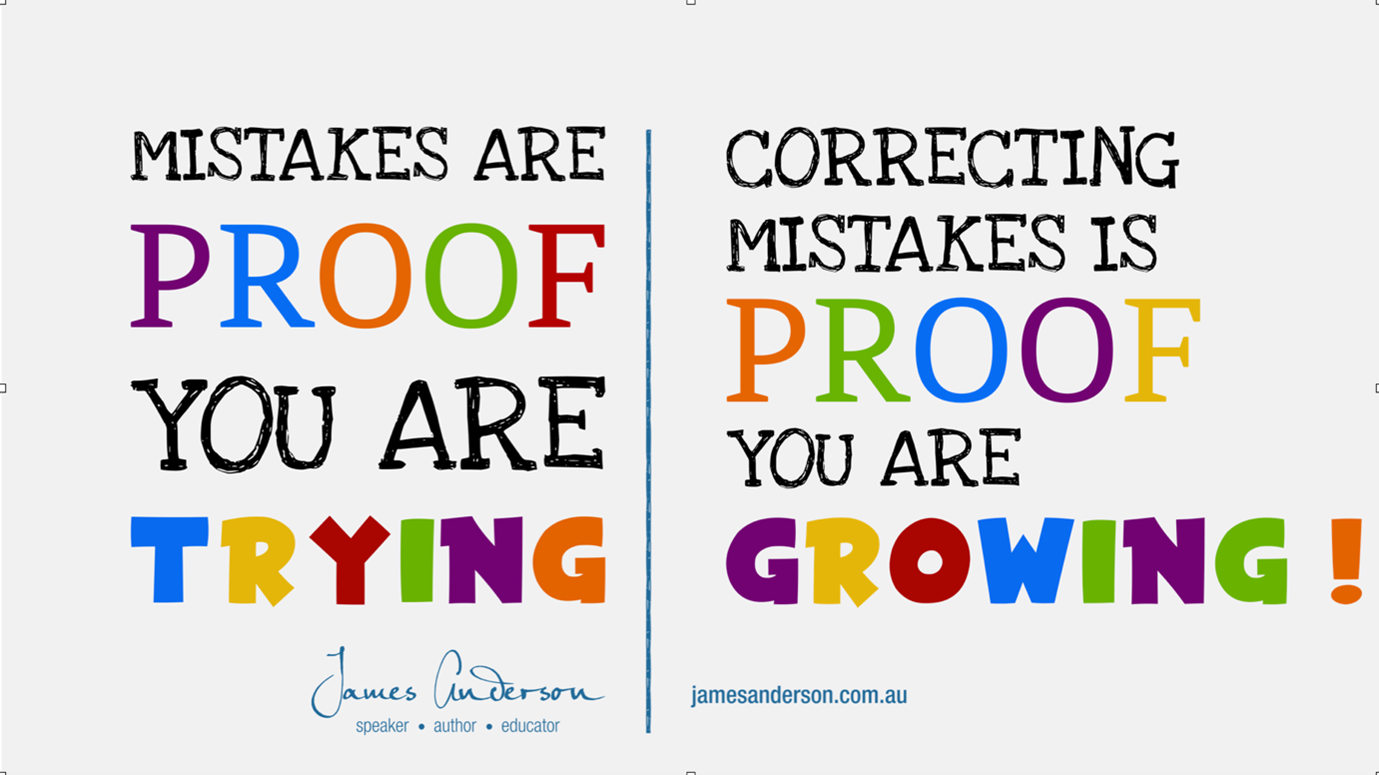Mistakes about Mistakes
There’s a lot of hype around mistakes. If social media is to be believed teachers should be praising, even celebrating mistakes. And we should be encouraging students to make mistakes.
I believe that teachers are making a mistake when they praise student’s for making mistakes.
Social Media and Mistakes
Social media oversimplifies the role of mistakes. For example, “Every mistake we make is progress” is simply not true. Often a mistake is unintended and unwanted and does not represent progress at all – in fact it might represent a setback.
It’s not the mistake that’s important. Progress, growth and learning comes from how we respond to the mistake, the information we are able to extract from it, and the strategies we use that ultimately correct it.
In other words, it’s the student’s actions, not the mistake, that are important. And it’s those actions that we should be praising.
common social media mistakes about mistakes
Our mistake has been praising the mistake, when we should have been explicitly praising specific student actions.
What should we be praising?
Whenever I talk to teachers about why they praise mistakes the tell me the real reason is because we want students to be stretching and challenging themselves. To be attempting new and more difficult problems. To be using the mistakes as opportunities to learn. To be engaged in the process of learning.
So instead of praising the mistakes try praising the way students are engaging in the learning process.
Praising students for being in their Learning Zone, for stretching themselves and attempting challenging problems
Praising students for the strategies they’ve used so far, how they’ve applied past knowledge, what they’ve done to identify the problem they’ve encountered.
Praise students for the progress they’ve made towards solving the problem. They might not have solved it yet, but they are likely to have moved forward.
Praise students for asking for help when they’ve run out of their own strategies.
Once you’ve exhausted your personal repertoire of strategies and knowledge, it’s sensible to seek new information from a peer, a resource or a teacher.
And then…what’s next?
And then go beyond simply praising what the student has done. Having made a mistake a student is likely to need some direction. Otherwise not yet, becomes “still not yet”. Go past not yet and ask, “what’s next?” Provide scaffolding and direction, not just praise.
Afterall, mistakes might be proof you are trying, but correcting mistakes are proof you are learning!
Don’t forget the end result.
At the end of the day what we are after is for to correct the mistake, to learn and to grow. Ultimately we want students to be able to perform. So, we need to be focused on the outcomes.
Praise new abilities, growth and achievement. For all that the mantra has become “Praise the Process, not the Product” we’ve again missed the point. We should be praising the product, but always in light of process that got students there.
If the process has not did not lead to the desired outcomes, then we definitely should not be praising the process, as Dweck points out in this article. It is not “OK, as long as you’ve tried your hardest”. If the process hasn’t brought about the desired result, then it was likely the wrong process and not something we want to praise
So, the next time you see a student struggling, making mistakes, and eventually succeeding, try offering praise something like this:
It’s wonderful to see you complete outstanding work, achieve great grades and produce your best work. You’ve achieved all that because of the way you were prepared to make mistakes, respond to them and develop new strategies when you needed to. That sort of approach will see you looking back one day, and today’s best will have become your second best.
Over the next two weeks, we look at the 6 different types of mistakes students make and explore why not all mistakes are helpful for learning.
Best wishes
James
Stay connected with news and updates!
Join my mailing list to receive the latest news and updates about mindset, Habits of Mind, Learning Agility and more.

